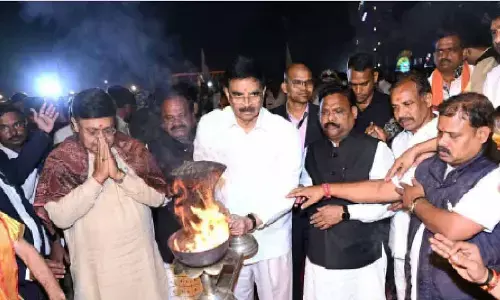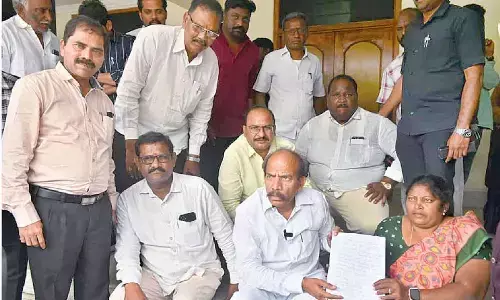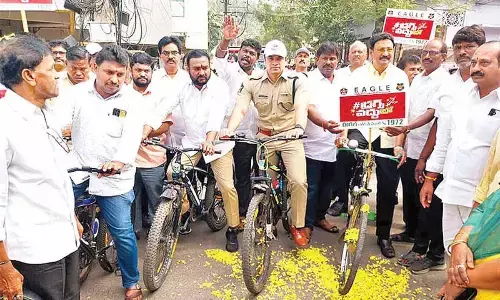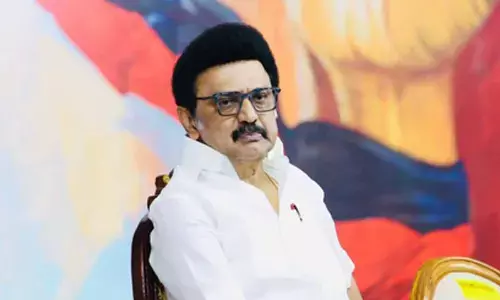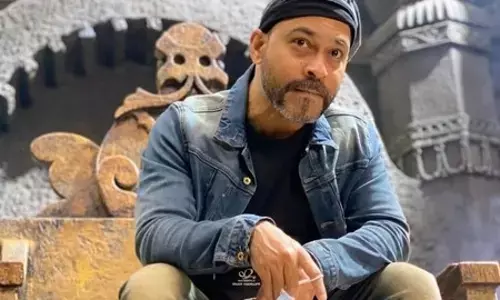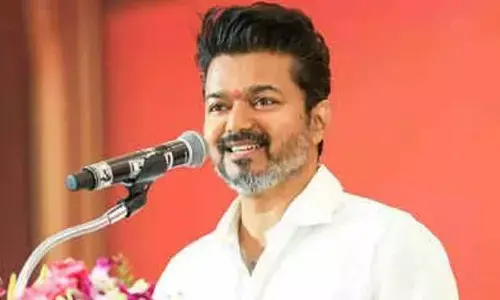The progressive flow of Telugu literature
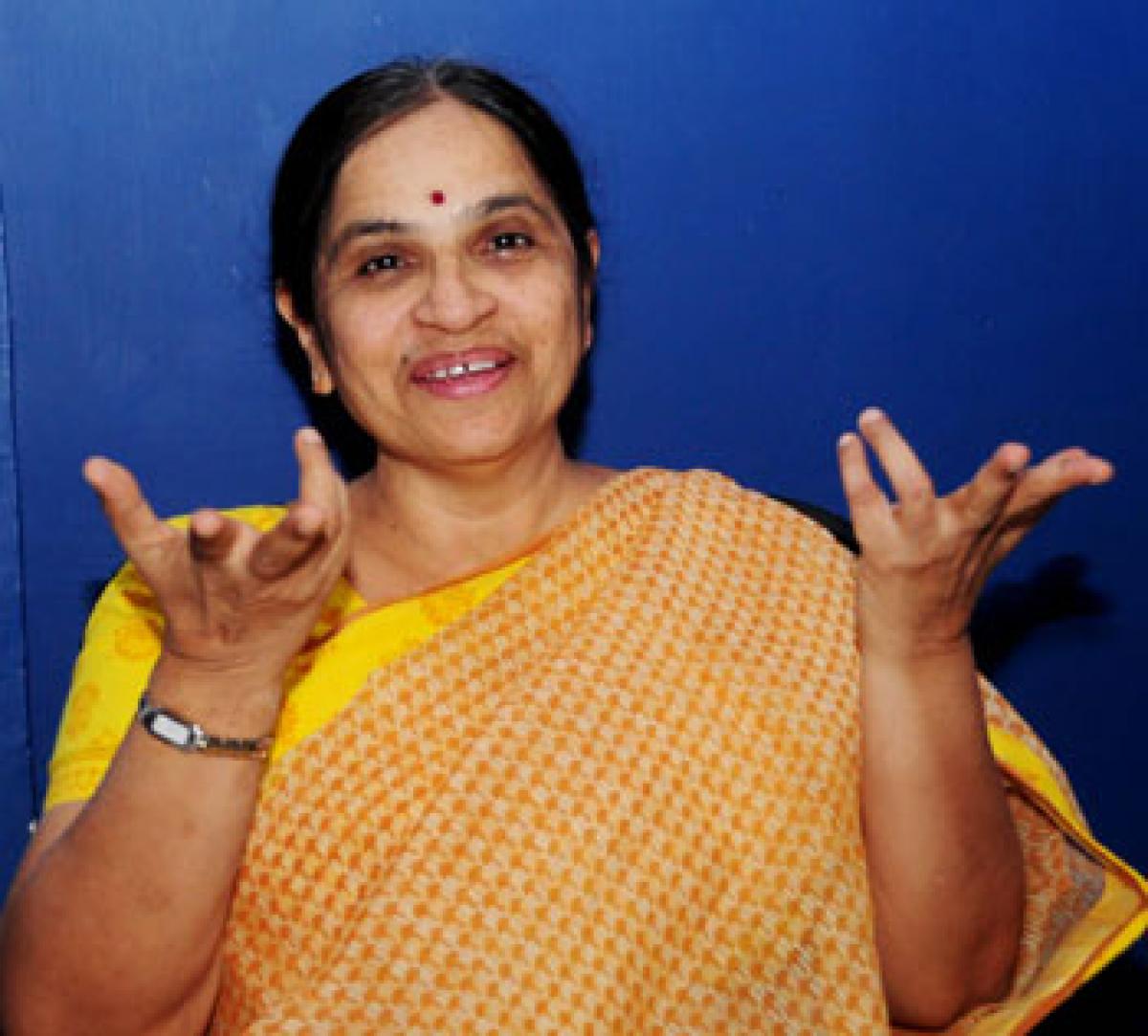
The early champions of feminism were the men everywhere in the world and it is quite obvious as, to quote the words of Virginia Woolf, “You can’t have great writers in a serving class.” Chalam, Sripada Subrahmanya Sasthri and Kodavatiganti Kutumbarao superbly and brilliantly championed the case of the women in their works.
Feminism, Dalit and minority literature are the modern offshoots of humanism; all these trends can be traced back to the beginning of Modern Telugu literature in general and Telugu short stories in particular.
Although the feminism in Gurajada Apparao’s ‘Diddubatu’ is questionable, his ‘Kanyasulkam’ sets the tone for Telugu feminism in a grand manner. Taking the mantle from the men, who were extensively writing about feminism in Telugu, Volga wrote many stories showcasing women in the society.
Her collection of short stories ‘Vimuktha’ won the prestigious Sahitya Akademi award recently
The early champions of feminism were the men everywhere in the world and it is quite obvious as, to quote the words of Virginia Woolf, “You can’t have great writers in a serving class.” Chalam, Sripada Subrahmanya Sasthri and Kodavatiganti Kutumbarao superbly and brilliantly championed the case of the women in their works.
Chaso, Malladi Ramakrishna Sasthry, Puranam Subrahmanya Sarma, Madhuranthakam Rajaram and Ichchpurapu Jagannadharao upheld the equal rights of women in their individualistic and unique ways in their stories.
Although the women were also writing spasmodically and hesitantly from the beginning the first strong voice of feminism can be noticed only during the 70s. Writers like Kalyanasundari Jagannadh and Illindila Saraswathi Devi wrote many stories about the plight of women but the feministic overtones were clearly heard first in the works of Ranganayakamma.
Many of her short stories dealt with the issues related to feminism and her novels like ‘Idekkadi Nyayam’ and ‘Janaki Vimukthi’ laid a firm foundation to Telugu feminism. An equally important writer of that period is R Vasundhara Devi, who not only wrote feministic stories but also showed the great heights to which the feminine sensibility can ascend.
But the distinguishing feature of Volga is that she has become a synonym of feminism in Telugu literature as she has complimented her literary work with the leadership of the feminist movement by travelling the length and breadth of the State, delivering lectures and propagating the feminist ideology.
Volga rightly called her first collection of short stories ‘Rajakeeya Kathalu’ (Political Stories) in the line of Kate Millet’s ‘Sexual Politics’. Millet points out that the term politics refers to power-structured relationships, arrangements whereby one group of persons is controlled by another. Describing sex as a status category with political implications she asserts,
“It is opportune, perhaps today even mandatory that we develop a more relevant psychology or philosophy of power relationships beyond the simple conceptual frame work provided by one traditional formal politics…the situation between sexes now and throughout history, is a case of that phenomenon Max Weber defines as Herrschaft, a relationship of dominance and sub ordinance.”
In ‘Oka Rajakeeya Katha’ Volga juxtaposes the dual moral codes of the patriarchal society. The husband whose fingers cut off in a machine, gets the support of the union and so he can get the compensation, procure an alternate job that suits his handicap and restart his life in a new direction.
But his wife is neglected, coerced and finally divorced as she has a miscarriage and becomes ineligible for pregnancy. Then the wife broods, “I have bought the job of a wife for Rs 50,000 and my duty is to get pregnancy and give children to him. If I am unable to do that job, I would be ousted and another person would be employed.
They mislead the people saying that marriage means love, affection and companionship and they don’t call it an employment so as to deny the justifiable rights like salary and bonus for a woman.” ‘In a Room of One’s Own’ Virginia Woolf also questions: Why is one sex so prosperous and the other so poor?
And women have always been poor, not for two hundred years merely, but from the beginning of time.” With the same vigour and vitality the wife in Volga’s story pleads, “He may be responsible for my miscarriage. My pregnancy was due to the combination of his cell with mine… I lost my job because of that.
I don’t even have anybody to console or to support me. I remain alone. Why? Why? Why? Where does the treachery that forced me to be alone begin? Why don’t the women get united? Why do they get separated as mothers, daughters, daughter-in-laws, and nieces and so on? Who are the people responsible for this?
Who are segregating us in the name of motherhood and companionship? Who is getting benefitted by this treachery? Why can’t the women get united like a single fist, I want to find out now. I want to meet all those injured and insulted and that would be my sole goal, I realise.
My salvation is not in my thali and in the service to my husband. Neither in the children whom I can’t deliver. It is there in getting the women united.”
Volga wrote scores of stories analysing the mechanics operating the political issues like dowry, domestic violence, sexual harassment, coercion, the denial of women empowerment, marital incompatibility and many more such issues related to feminism.
She rightly chose a middle path between art and propaganda and so, many of her stories can be considered stories of ideas. That she didn’t forget the importance of the practicality of the ideas can be illustrated in stories like ‘Anveshi’, where she portrays the dilemma of the parents, who get disturbed when their only daughter opts for a revolutionary course even as they were active members of a liberation movement.
The later part of her writings is significant because of her rereading of the myths, a method successfully adopted by Chalam and Kodavatiganti Kutumbarao. In stories like ‘Mrinmayanadam’ and ‘Samaagamam’ she juxtaposes the plight of Sita of Ramayana with the ordeals of Surpanakha and Ahalya to assert that women have been used as mere chattel and instruments by the men to fulfill their lecherous passions and banal cravings.
Volga’s novels, ‘Swechcha’, ‘Gulaabeelu’, ‘Akasamlo Sagam’ and the others are all, in a way, bigger short stories dealing with similar feministic issues in an elaborate way. The hallmark of Telugu feminists is that they, unlike some of their western counterparts, have never advocated the extremities like lesbianism.
They do believe that the struggle is not between the man and the woman but it is between liberalism and orthodoxy, between patriarchy and humanism. And they never hesitate to say that the progress they achieved is due to the active participation between men and women.
They know that marriage is a compromise very much as the friendship. But the ideal man-woman relationship demands the partners to be more refined and cultured. It is a destination far off but the reformative zeal of the feminists like Volga makes the humanity to pace to that direction confidently.
As, many writers have been joining her way by the day we can hope that the journey towards that utopia would progress further and further.
A few works of Volga
Novels
- Sahaja (1986): A story of four friends whose lives take different paths after marriage. When they realise that marriage and family have reconstructed their lives and destroyed their creativity, they attempt to free themselves of the shackles of oppression.
- Sveccha (1987): The exploration of the meaning of freedom in her life by a middle class woman. The exploration leads her to give up her family - parents, husband, daughter and the organisations she works for.
- Kanniti Keratala Vennela (1988): An introduction to world cinema. Examines the trends in feminist cinema.
- Manavi (1989): Story of a woman who understands the need for women to safeguard themselves against the destructive power of the patriarchal family.
- Akasam Lo Sagam (1990): A novel depicting rural women's experience of oppression - the coming together of caste and gender based discrimination in their everyday life, and the importance of collective struggle.
- Gulabilu (1993): A novel that explores the shifting trajectories of consciousness of a middle class woman in the context of the anti-liquor struggle. This work also looks at the negative impact of economic structural adjustment.
Short Story Collections
- Rajakiya Kathalu (1992)
- Prayogam (1995)
- Stories in both these collections speak of the thinking and politics that surround women's bodies.
- Plays
- Vallu Aaruguru (1995): A Play built around six of Chalam's women characters.
(The writer is a bilingual short story writer, novelist and poet, writing in both Telugu and English)








